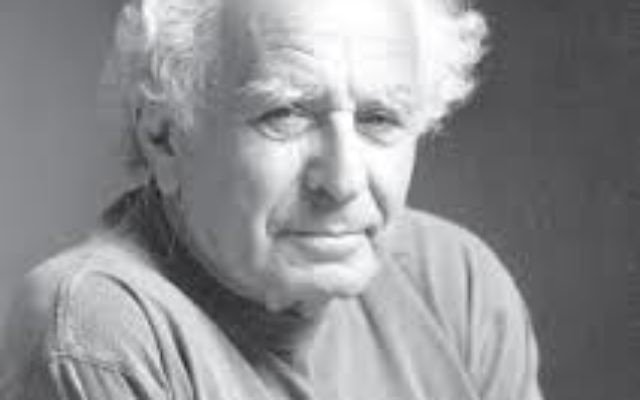We Can’t Help Fearing the Consequences of Chaos
By Eugen Schoenfeld
Donald Trump’s election was a reaction to fear — the same type of fear that affected many other nations, especially Germany, during the 1920s and ’30s. It’s a fear the Torah describes as a response to the rise of amorality, a fear labeled as mehumah, the state of social chaos.
The consequence of chaos is unpredictability, fueling the fear that Franklin Roosevelt warned us against, lest it rob us of our senses. It is a fear that Erich Fromm, the psychoanalyst, felt led people in Germany to give up their freedom and submit themselves to the empty promises of “wanna-be messiahs” who are nothing but dictators.
Be aware of chaos. Chaos is the condition that various creation stories say the gods had to defeat to make the world. Chaos is our universal enemy. In the Torah, the world was tohu vavohoo (void and without order) — that is, chaotic — and G-d had to eliminate chaos before He could say, “Ki tov,” it was good.
This idea is repeated in Greek, Chinese and Egyptian mythologies. In the Greek narrative, Erebus rose out of chaos and made order possible. In the Chinese version of creation, a black egg, the symbol of chaos, was destroyed, making possible the appearance of yin and yang, symbolizing balance, order and interdependence.
A good life is possible only when actions and their consequences are predictable — that is, when human life is governed by if-then propositions.
Deuteronomy 11:13 reads, “It shall be if you listen to my command … I shall give the rains in your land, both the spring and winter rains predictably in time, and when you sow, you will predictably gather your corn, wine and your oil in time. However, if you will not listen to Me, the consequence will be unpredictability,” sparking the fear of mehuma, of confusion and lack of order.
The punishment for Babylonian excess ambition in seeking to become godlike was the “babel” of chaos and absence of the “if-then” proposition. It was the opposite of ki tov and presented the significance of predictable consequences.
Through all phases of existence, a good life is a predictable life. I go to school because when I acquire knowledge, I will get a good job, will work and will be rewarded. I know what will happen to me. If I work and save money, I will retire and enjoy my golden years.
All of us accept the wisdom of if-then propositions. We learn that most answers to questions in life are covered by if-then propositions.
The Book of Proverbs is an example of the various books of wisdom that are supposed to enlighten us with parables and tales as answers to one constantly asked question: What shall I do?
Unfortunately, the world in which we live is always in a state of flux. Change is always seen as a threat to our stability. Change, while necessary, creates conditions for which the books of wisdom have no answers.
Change is a threat to our social life and our physical existence. One merely has to look at the disappearance of animal species throughout the billion years of life on Earth because they could not accommodate changes.
What is true for the biological world is also true for social life. In the past, change was slow. But the speed of change follows a geometric progression. Technological changes occur extremely fast. We hardly have time to adapt and develop new sages who will offer advice for living.
In my 60 years as a college professor, I found that students were having great problems deciding which of the many available subjects they should study. It has become common for students to change majors a few times during their years in college.
College students must respond to changes in the systems of production, but who can advise them what skills will be needed down the line? They respond with fear.
Robotics and computers have changed occupational skills, but will today’s students be as superfluous as their parents later in life? The applicability of parents’ lifetime of knowledge has declined, and parents in many instances are no longer capable to serve as advisers.
We indeed are in an unpredictable world, a scary world. a world affected by fear.
Emile Durkheim, one of the fathers of modern sociology, has pointed out that the loss of a moral order and with it the predictability of life is strongly associated with suicide.
Be aware: Changes in the productive system cannot be stopped, and our concern for the future will remain a feature of life. Above all else, there are no messiahs to assure you that they know everything and that following their teaching will lead to a good life.
Our fate is to struggle, but we should never give up our hope for the future. We must believe in the words of our prophets: “There is always hope in our future.”
Still, it is the duty of society’s leaders —political, social and moral — to tell us the truth instead of assuaging us with falsehoods.





comments